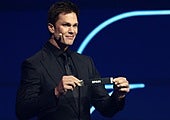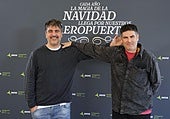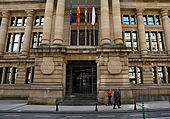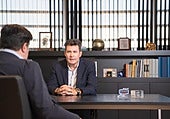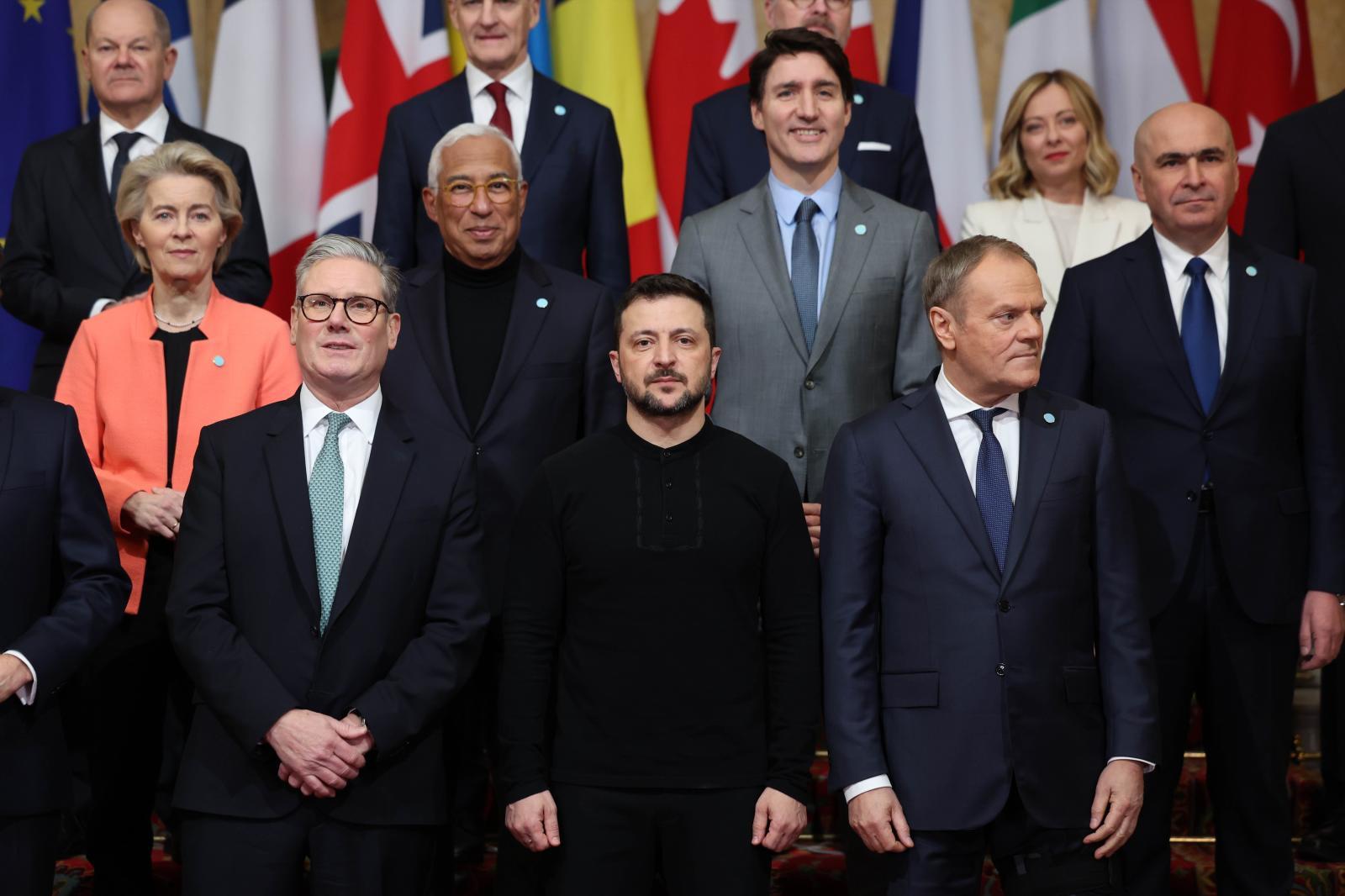The EU Celebrates the "Growing Unity" in Europe to Defend Ukraine and Invites "Outside" Allies to Join
The United Kingdom clarifies, however, that there is no formal agreement with France to request a one-month truce, as Macron announced this Sunday at the end of the London summit.
M. Pérez
Monday, 3 March 2025, 16:20
The European Commission expressed its satisfaction on Monday with the "growing unity" between the EU and allied countries such as the United Kingdom, Canada, Norway, and Turkey, which have been part of last week's discussions to reinforce aid to Ukraine and strengthen the continent's defense. Brussels referred to the mini-summits held in Paris and London as an initial response to the distancing of the United States from European positions and the start of direct talks with Russian President Vladimir Putin to achieve peace in the invaded former republic.
"What emerges from the recent meetings on this crucial issue is a clear and undeniable unity from leaders across the EU and beyond who are willing to support Ukraine vocally and more than vocally," stated European Commission spokesperson Paula Pinho.
The European Commission considers one of its priorities to assist Ukraine and its military machinery so that it can negotiate peace with Russia from a strong position. "Anyone who can contribute to this is very welcome," said Pinho, indicating that the Commission is open to new allies. In fact, the European Union seeks to form as broad a bloc as possible in terms of community security, given the distancing of the United States, which has decided to go it alone in seeking solutions for Ukraine by negotiating directly with Russia.
The next step in this effort will take place this coming Thursday, March 6, with an extraordinary summit crucial for enabling new funds to Kiev. The President of the Commission, Ursula von der Leyen, will present a report at the conclave with existing options to bolster the bloc's defensive strength and support for Ukraine, which generally involves each partner significantly increasing military spending.
However, the "growing unity" that the EU boasts of does not seem to be so. Pinho highlighted that the meeting will be "important" and an opportunity for "all leaders to speak out," although she preferred not to address the opposition of Hungary and Slovakia to continue sending aid to Ukraine. Hungarian Viktor Orbán will also urge the Commission to negotiate face-to-face with the Russian president, as Donald Trump is doing.
The spokesperson also declined to assess the proposal for a partial truce in Ukraine while definitive peace is negotiated, which Emmanuel Macron announced last night in 'Le Figaro' as the result of a joint pact between France and the United Kingdom. British Secretary of State for the Armed Forces, Luke Pollard, clarified on Monday that there is no formal agreement between Paris and London, but "we are working together, with our European allies, to determine the way forward for lasting peace in Ukraine."
"There are several options on the table, subject to deeper conversations with American and European partners," added British government sources regarding their forecast to create a genuinely European peace plan that the United States can adopt to unlock the conflict in the east. London and Paris aim to achieve a general agreement in designing this plan, which they call "Europe Plus"; that is, encompassing the largest number of governments on the continent and others, such as Canada, willing to join.
Little is known about this plan, except for the formation of a large coalition of "volunteers," who would actually be military personnel, to ensure calm in Ukraine after peace is signed. Macron and Starmer met last week with Trump and brought back from the White House some details of what the US president wants to support a normalization process in the east. Among other foundations, Ukraine should renounce joining NATO and make certain territorial concessions.
Trump has communicated to Macron and Starmer that he wants to see this plan as soon as it is finished, according to White House sources. But at the same time, he wants to expedite his planned meeting with Vladimir Putin, which is still being negotiated and could take place without much delay in an Arab country. For now, he is scheduled to meet with his top advisers on Monday to discuss what to do with US aid to Kiev, and he does not seem to have woken up on the right foot: "We should spend less time worrying about Putin and more time worrying about immigrant rapist gangs, drug lords, murderers, and people from psychiatric institutions entering our country... So we don't end up like Europe!" he tweeted in the early hours in apparent response to Sunday's European leaders' summit in London.
The meeting will include Secretary of State Marco Rubio, as well as the top Defense official, Pete Hegseth. No joke. Both have harshly criticized Volodymyr Zelenskiy this weekend for his "lack of respect" towards the American government for not having thanked the aid received over the years during his visit to the Oval Office, even though he ended up humiliated by Trump and expelled from the Oval Office.
The White House is considering several options. One of them involves canceling all pending aid from the package approved by the previous Joe Biden administration or, on the contrary, maintaining it but with cuts or conditions. Some advisers hold radical positions against Zelenskiy, such as the demand that he resign after peace is established and apologize to Trump. The Republican team wants the Ukrainian leader to also sign a declaration that he wants peace before being able to return to the Oval Office.

